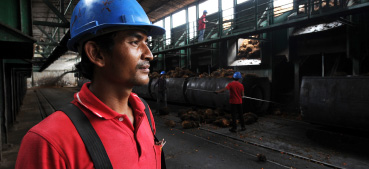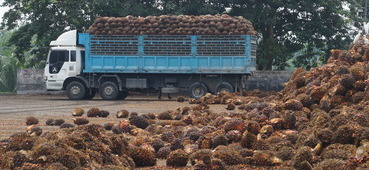To promote the sustainable production and manufacture of palm oil and palm kernel oil and also to counter international criticism of practices in the palm oil industry, various certification schemes have been set up in recent years. They all aim to improve the sustainability of oil palm cultivation. Certification of palm oil is a powerful method of addressing the environmental and social problems associated with the expansion of palm oil plantations. These problems include the displacement of indigenous peoples and competition between farmers and large agricultural companies for water and other basic resources. Certification provides a way of tackling and resolving these problems.
However, certification systems are just one aspect of the drive to make palm oil production more sustainable: they are not sufficient to resolve all the problems in the sector. The wider action that is needed includes supportive national policies and laws, enforcement of existing legislation and the assumption of responsibility by producers and traders. The certification systems themselves are also in need of improvement. For example, many members of RSPO – which is currently the most widely used certification scheme for palm oil – consider that its requirements do not go far enough. RSPO still permits limited cultivation of oil palms on peatlands and the use of highly toxic pesticides. Criticism is also levelled at the intransparent and sometimes lengthy complaint procedures.
Despite the criticisms, FONAP regards certification schemes as an important step towards sustainable palm oil. The Forum for Sustainable Palm Oil currently recognises four certification systems: RSPO, ISCC PLUS, RA and RSB. While accepting these schemes, FONAP also works to refine and improve them (What we are doing about it).
The certification schemes recognised by FONAP are summarised below. In addition, our factsheet Comparison of the certification systems enables the different schemes to be compared.

Certification schemes
Certification schemes aim to ensure that oil palm cultivation and palm oil production are sustainable. They verify compliance with sustainability criteria. Click here for more information on certification schemes in the palm oil sector.

Trading models
There are four different trading models for sustainable palm oil. The following pages describe the differences between the various trading options.

Supply Chain certification
Certification of the supply chain confirms that the palm oil has been monitored without interruption throughout the supply chain, including during refining, processing, finishing, transport, marketing and arrival at the end user. Click here for more information on what this involves.

Sources of sustainable palm oil.
Perhaps your company would like to buy sustainable palm oil but you don’t know how to set about it. The information you need is here.